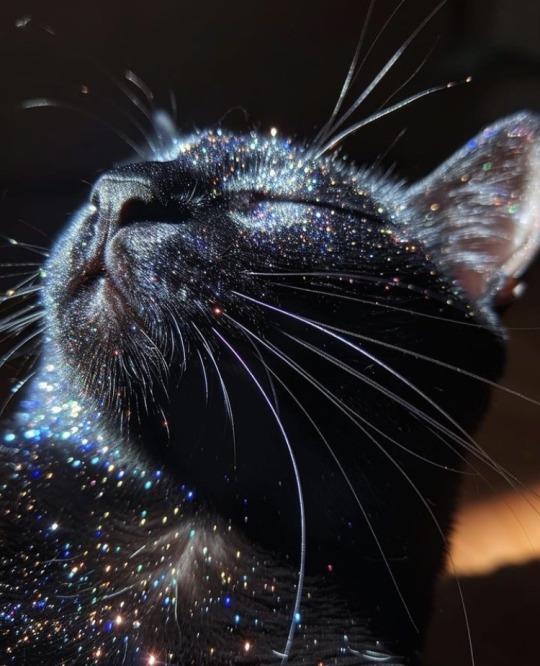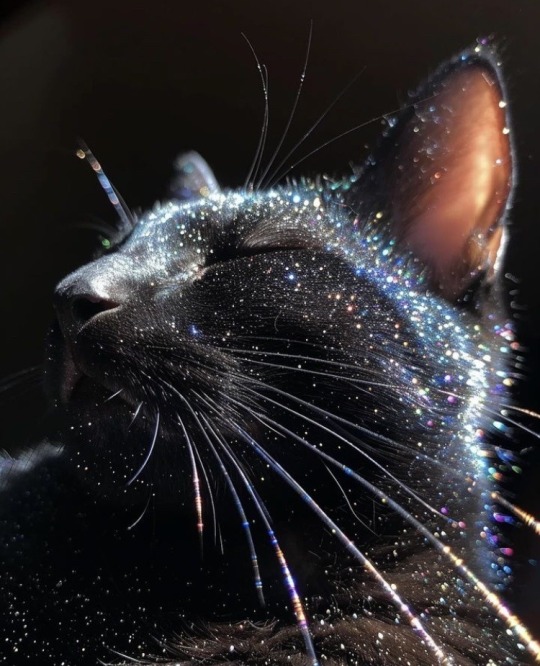Text
John Oliver gets it, as usual. AI Slop is one of the best episodes of Last Week Tonight I've seen so far. Gen AI is theft. Those who use it are not authors or artists, they're grifters profiting from real creatives.

44K notes
·
View notes
Text
65K notes
·
View notes
Text
Sometimes I'll have a thought about fictional characters that's so intensely online that half of my brain goes "you NEED to go outside more often, it is getting dire" and the other half goes "your inner child approves of her vibrant imagination staying alive within you, keep up the good work"
247 notes
·
View notes
Text
"Your ai copilot say goodbye to endless search results!" 🖕🖕🖕🖕🖕
29 notes
·
View notes
Text
i think we need to bring back calling people internet famous instead of calling them influencers like there needs to be something borderline derogatory injected back into it
45K notes
·
View notes
Text
The problem with having a child with an attorney that has spoken to the child like an adult since birth is that she's 4 years old and she's negotiating the order in which we're going to complete tasks as a family to best suit her idea of an ideal day.
46K notes
·
View notes
Text
the morbius jokes got stale fast but sony misunderstanding them and rereleasing the movie only to cause it to lose even more money was an all timer moment. we couldnt recreate that situation if we tried
18K notes
·
View notes
Text

daily reminder that there is absolutely nothing normal about being expected to waste a majority of your life at a corporation to survive instead of indulging in better life experiences ✨
194K notes
·
View notes
Text
11K notes
·
View notes
Text
so itchio has shadowbanned any games tagged with 'nsfw', 'adult', or 'erotic' so they don't show up in searches, and several devs have reported that their r18 games have been removed from the site with no warning
you know, maybe the internet shouldn’t be controlled by payment processors and terf lobbyists. and maybe people should be more concerned about this rise of censorship on queer media.
52K notes
·
View notes
Text
37K notes
·
View notes
Text
The way necromancy works is this: Everything in your body — meat, bones, skin, blood — has something like a memory. They remember, in their own way, what it’s like to be alive. Skin remembers the sun. Bones remember what shape they’re supposed to be in. Muscle memory is more than just an idiom.
The way necromancy works is that the caster puts a little bit of their willpower into a corpse to order it to remember how it functioned in life and obey. This is easiest to do with bones, which are easy to trick, and becomes increasingly difficult the more of the original body remains.
To reanimate a full body to your command, you have to have a lot of willpower.
The necromancer checked the map. She checked the map again. She squinted up at the stars, lips moving silently. Then, taking the lantern off its hook, she peered over the side of the little sailboat.
There wasn't much to see. The sea was dark and still as glass, except where the lanternlight turned a patch of seawater a yellowish-green. A tiny fish flitted into the gleam, attracted to the light, and then vanished into the murk again.
The necromancer chewed the inside of her cheek. She sat down again, the boat bobbing gently with the movement, and checked the map one more time. Then she opened the little wooden case on the floor of the boat, which unfolded into a neat arrangement of drawers.
There were. Things. In the drawers. Some wriggled. Others twitched little beetly legs into the night air. A few of them made noises, which ran together into a squeaky, wheezy squeal of horror.
The necromancer twiddled her fingers over the display as she considered her options. Then she grabbed a few of the twitching, wriggling things, held them in her palm and squeezed her hand into a fist as tightly as she could with a squelching noise.
She opened her hand to inspect her work. She breathed the spell into it, and then, holding her hand over the edge of the boat, dropped the spell into the sea.
And that seemed to be it. She sat back in the boat and closed the little wooden case. After a moment she started looking over the map again.
There were a lot of handwritten notes on the map. Each one was connected to a mark and some coordinates; some of them said, "Storm 1457," or "Struck a rock 1483." Others said "Total failure," or “Completely dissolved.”
The note the necromancer seemed most interested in was the one that read, “Battle of Salzstein, 1501.”
The necromancer checked the map. She checked the map again. She squinted up at the stars, lips moving silently, and then she was suddenly thrown down to the floor of the boat as though a giant, invisible hand had crushed her.
Her mouth opened in a noiseless scream.
Two minds were fighting for control of the corpse; on one side was the mind of the caster, and on the other was the memories of bones, of flesh, of skin, trying to drive the caster out.
The weight of that mind was incredible.
Sweat poured off the necromancer’s brow; darkness whorled across her vision. Then slowly, every movement a bone-breaking agony, she pushed herself onto her hands and knees, lungs straining.
The trick was that this mind knew how to obey.
The necromancer stood, wobbled, steadied herself and poured her willpower into the sea. She tried to make hers the full willpower the thing had obeyed in life, the will of the wind, of the sea, of the rigging and the wheel.
Because of course it had been alive. In a sense, they were all alive. Sailors talked of them like they were alive, gave them names, called them “she.”
Sailors knew they were alive.
It was the cessation of that life that interested her.
The necromancer reached out with her power, seized the mind in her hands and pulled, blood and foam flecking out the corners of her mouth as she ground her teeth together with the titanic effort and ordered it to obey.
The sea roiled, hundreds of tons of water moving fast as something deep below boiled to the surface.
A bowsprit sprouted from the water. Then a wood-rotted figurehead of a mermaid. Then inch by inch, yard by yard, the huge barnacle-encrusted bulk of silt-stained timber rose out of the deep, seawater streaming out of every gunport.
For a moment the warship hung in the air like a monstrous fish held by the gills of a colossal fisherman. It dropped into the sea with a sound like a depth charge; the little rowboat lurched in its wake.
The necromancer released the spell. Then she threw up, and passed out.
———
Later, once she had woken, gathered together the tackle box, the lantern, and the map and had scrabbled aboard, the necromancer inspected the undead ship.
There was a hole in the hull where a magazine charge had exploded. This was, admittedly, fine. Undead men could walk with a hole in their bellies; an undead ship could sail with one as well.
Really, she thought, despite the discomfort the spell had worked masterfully.
It was a perfect start.
She unfolded the map on the soggy floor of the quarterdeck, sucked the end of a pen, and next to the last marker wrote “Total success.” Then her finger began to trace down the page to the next.
And the undead ship — unbidden and obedient — shifted its sails and began to move south.
7K notes
·
View notes






